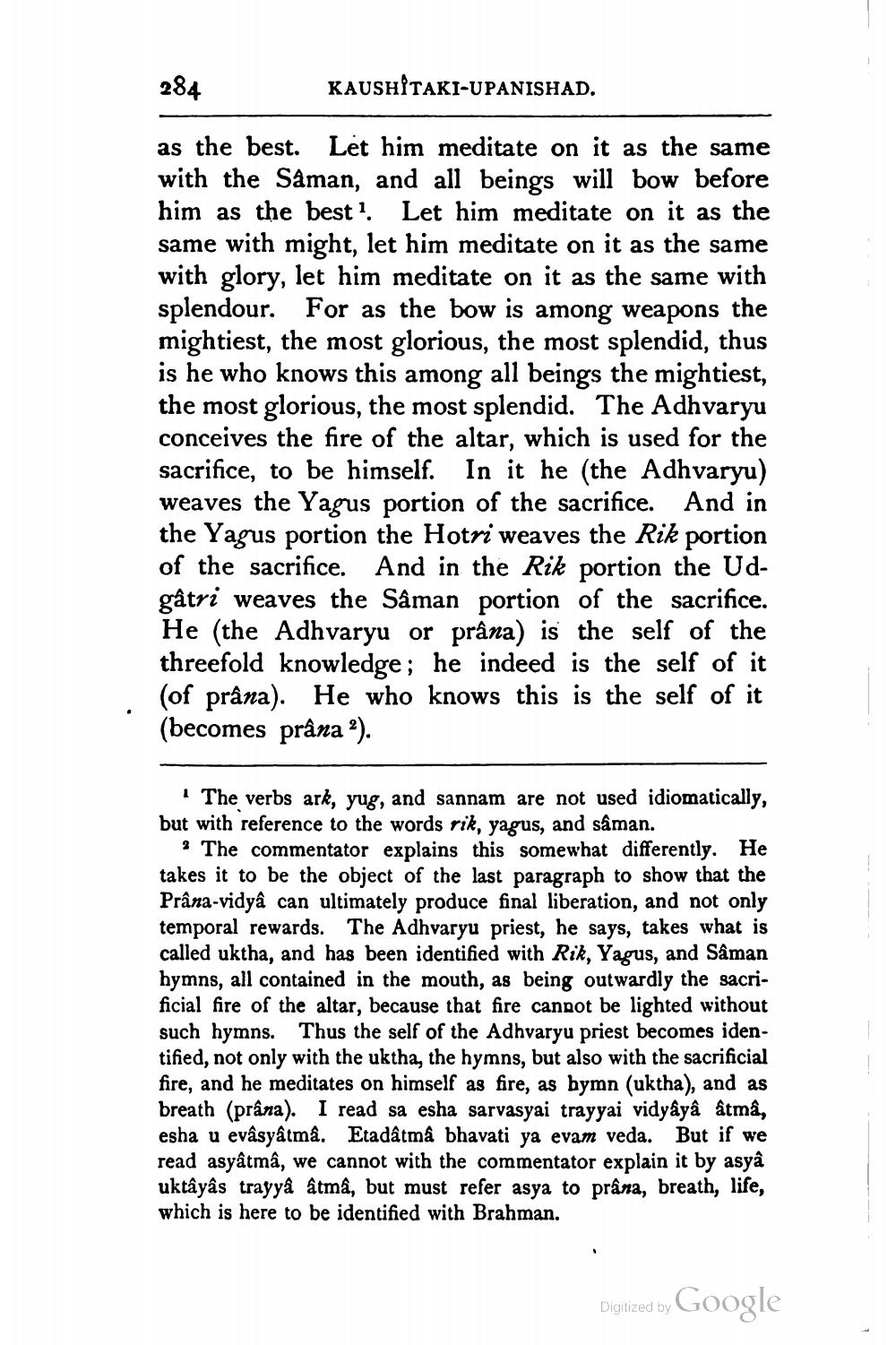________________
284
as the best. Let him meditate on it as the same with the Sâman, and all beings will bow before him as the best1. Let him meditate on it as the same with might, let him meditate on it as the same with glory, let him meditate on it as the same with splendour. For as the bow is among weapons the mightiest, the most glorious, the most splendid, thus is he who knows this among all beings the mightiest, the most glorious, the most splendid. The Adhvaryu conceives the fire of the altar, which is used for the sacrifice, to be himself. In it he (the Adhvaryu) weaves the Yagus portion of the sacrifice. And in the Yagus portion the Hotri weaves the Rik portion of the sacrifice. And in the Rik portion the Udgâtri weaves the Sâman portion of the sacrifice. He (the Adhvaryu or prâna) is the self of the threefold knowledge; he indeed is the self of it (of prâna). He who knows this is the self of it (becomes prâza 2).
KAUSHITAKI-UPANISHAD.
The verbs ark, yug, and sannam are not used idiomatically, but with reference to the words rik, yagus, and sâman.
The commentator explains this somewhat differently. He takes it to be the object of the last paragraph to show that the Prâna-vidyâ can ultimately produce final liberation, and not only temporal rewards. The Adhvaryu priest, he says, takes what is called uktha, and has been identified with Rik, Yagus, and Sâman hymns, all contained in the mouth, as being outwardly the sacrificial fire of the altar, because that fire cannot be lighted without such hymns. Thus the self of the Adhvaryu priest becomes identified, not only with the uktha, the hymns, but also with the sacrificial fire, and he meditates on himself as fire, as hymn (uktha), and as breath (prâna). I read sa esha sarvasyai trayyai vidyâyâ âtmâ, esha u evâsyâtmâ. Etadâtmâ bhavati ya evam veda. But if we read asyâtmâ, we cannot with the commentator explain it by asyâ uktâyâs trayyâ âtmâ, but must refer asya to prâna, breath, life, which is here to be identified with Brahman.
Digitized by
Google




